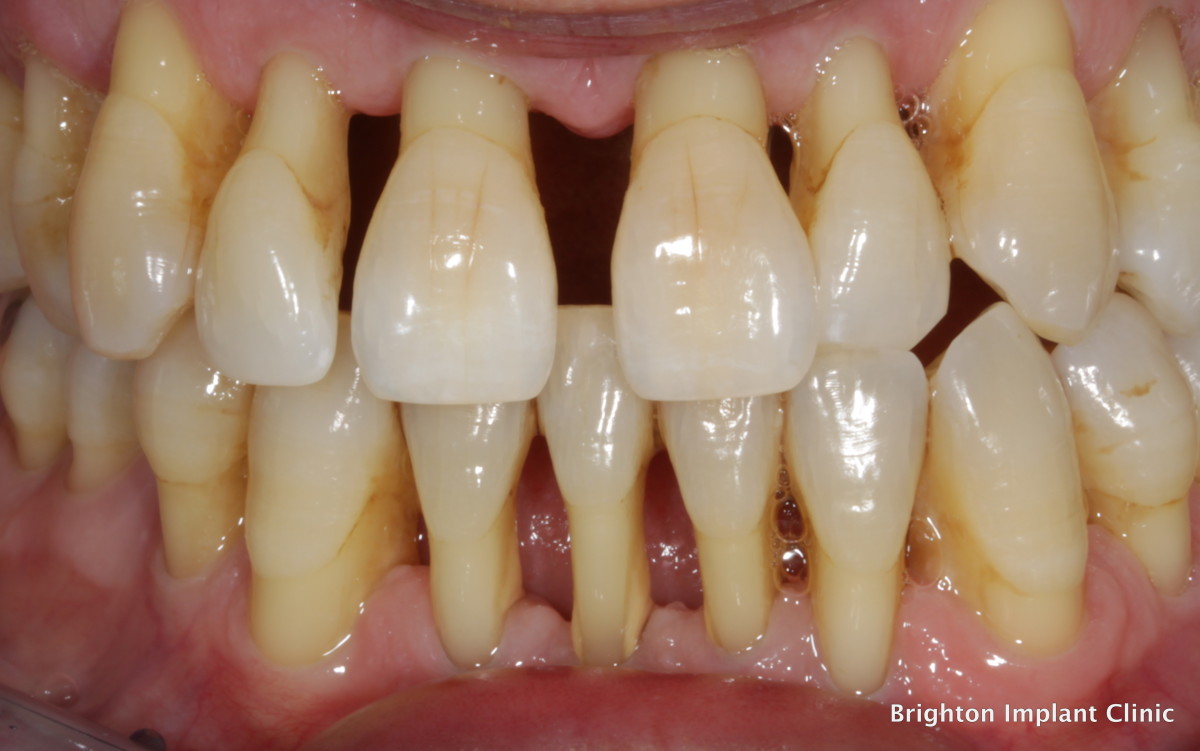Fear of the Dentist? Be More Afraid of the Dental Bill! I Am!
Fear of the Dentist
If you are like most people, the thought of going to the dentist strikes fear in your heart and just thinking about the prospect makes your blood pressure go up. So you wait, putting off minor things and then the dreaded day comes; you have a toothache...Okay, you know that you have dental insurance and the card is somewhere, but you never really paid too much attention to it. So you find your insurance card and it may even have the name and phone number of a dentist that you don't know, have never seen, but obviously chose when you signed up for your personal dental insurance. You put the card in your wallet, take a couple of Advil and hope, hope, hope that the pain goes away. A few days later, the pain comes back and now you are not even sure which tooth hurts. It is so much worse! A pounding in your head and you have a hard time paying attention to anything else. It's time. You locate your card and make the call. You explain to the person that answers the phone that you have never been to this dentist, but you have to seen right away because you are in agony. Of course they will see you and you make the appointment. Usually, they will ask for your insurance information and you will read them the information that is on your insurance card. You get off the phone and wait for your appointment day and time. Because you are in so much pain, they were good enough to get you squeezed in either today or tomorrow. In the meantime, they will check your eligibility and your coverage.
The Dentist Is A Businessman!
Before you go, understand and accept the fact that your dentist is a businessman. There is nothing wrong with that, but you need to be aware of it. Every week throughout this country, there are seminars offered for dentists on how to market themselves, how to increase their sales, how to increase their bottom line, how to make more money.
There are hundreds of books that deal with marketing strategy, aimed specifically for dentists, from how to streamline their practices to how to sell orthodontia, lumineers, etc. Don't let yourself become a marketing statistic.
Get ready for your visit. Your pain must be stopped and that should be your main focus. Just keep these things in the back of your mind.
Your Visit
You arrive at the dentist's office and usually fill out paperwork which will contain information regarding your past medical history and current problem. It will also require your dental insurance information. At this point they will make a copy of your dental insurance card. When you are called in, chances are you will be taken for complete dental X-rays, so that the dentist is able to determine what type of services you need. In your mind, you are thinking that you just need the pain to be gone! Nothing else, just stop the pain! What you should be thinking is how much are these Xrays going to cost me? And- after I leave this room and walk into the treatment room, how much is any proposed treatment going to cost me? The pain in your mouth may end up seeming minor in comparison to the pain of paying for treatment that is not covered by your dental insurance policy. Dental costs can cripple you if you are not prepared.
Even though you are in pain, you should have checked your coverage prior to coming to the dentist. Most dental plans have internet access or at least a customer service phone number. Find out what is covered, what your copays are and if there are annual limits to the dollar amount the insurance company will pay. If you have NOT done any of this prior to having your X-rays taken, ask the tech if they are covered by your insurance company. Chances are, they will be covered. Most dental coverage worth anything will cover at least one complete set of dental X-rays per year at 100%. Most dental insurance policies will also cover routine cleanings and emergency evaluations that are due to tooth or gum pain.
Your next steps should take you to the treatment room where you will meet your dentist. He will put the X-rays where he can see them and proceed with a full mouth exam. As he examines your mouth, he will probably be speaking about each tooth and addressing his dental assistant or dental technician. He or she will be taking notes. After the dentist is done with the initial exam, you will be told what work you need to have done. Most dentists, in my experience, do not confine this conversation to the immediate area in which you are experiencing the pain. They will usually tell you every cavity you have, every extraction you need (wisdom teeth), and every root canal you may need now or in the near future. This is far too much to bear, especially when you are hurting! Don't be afraid to speak up! This is your mouth! It belongs to you. Simply say that you are here today to find out what is causing the pain you have right now and how it can best be stopped. Appreciate that you may need a deep cleaning or that you still have wisdom teeth, but remember the reason you are sitting in the chair that you fear more than giving birth!
When you isolate the work that is needed to stop the current pain, be it a root canal or extraction--it is never just a routine filling--you can't be that lucky--ask for a complete breakdown of charges. Ask them to include the billing codes next to each charge. Don't allow any charges with a code that ends in the numbers 99! Those charges may not be covered and I guarantee there is a real code for the charge! Ask what your insurance will cover. If it sounds like you will be paying too much of the cost, call your insurance company first. Ask the finance manager to get on the phone with you AND the insurance company. Don't be embarrassed! For a root canal or extraction, your dental coverage may include 100% of the cost for a root canal or even an extraction or as little as 40% for either. Know that most plans, even the best, cover very little of the cost of general anesthesia or being put to sleep. They don't usually like to pay for nitrous oxide either, so if you want (remember it is your choice, not mandatory) either of these, you will unfortunately have to pay for them. Your insurance company will usually provide full coverage for local anesthetics, such as novocaine or lidocaine. These medications will keep you from feeling any pain, if administered correctly and that is why the insurance company hesitates to pay for anything additional. It is usually not necessary. It may make it easier for you to handle the procedure if you are unconscious, but remember, there are medical risks to general anesthesia (including death) and significant financial cost associated with being knocked out.
There should be something that can be done the day of your visit that will help lessen the pain. If the dentist has time to do the root canal (I am guessing here that this is what you will need because I see it so often) and you feel comfortable with the dentist and the cost, you should probably have it done. If you have an infection, make sure that you know enough of your medical history to know whether you need to be treated with an antibiotic first. If that requires a call be made to your doctor, make the call! This is important! There are many medical conditions that absolutely require pre-treatment with an antibiotic for any dental work. That means one to three days of an oral antibiotic (a pill) before any dental work. If you require this, do not be afraid to ask for pain medication that will help to ease the pain until the actual procedure can be done. I am not sure if your dentist has ever had a real toothache before, but many times, ibuprofen, advil, tylenol, etc. simply will not cut it. If your dentist hesitates to give you something stronger, do not be intimidated. This dental professional has a responsibility to treat your pain and not make you feel like a drug seeking addict when you are not. If the dentist cannot bring himself or herself to write you a prescription for something stronger than an over- the- counter analgesic, you might consider a different dentist; one that is a little more sensitive to your comfort level.
If you have the root canal done the same day, you need to know what types of crowns will be covered by your dental insurance carrier. There are many, many choices available and the costs can range from very little to very high. Also take into consideration where the tooth is. If the tooth is a back molar, maybe you don't need the prettiest crown available. If it is one of your front teeth, then appearance is always a consideration. Some dentists have the ability to create your crown the same day, right in their office. While this is a wonderful advantage for most people, it does not give you much time to consult with your insurance company regarding the different allowable coverage for each type of crown.
Before You Pay Your Bill
When you have received treatment for your current dental problem, you should receive an itemized bill. This should have a complete breakdown of charges. What it is probably missing are the actual codes for each service that is charged. There are Dental Procedure Codes which are used by your dentist to bill your insurance company for the services provided. For each procedure, there is a nationally recognized code that should be used. This is where you may encounter a problem. Ask for a copy of the billing that includes the Dental Procedure Codes. Do not assume that the person who does the billing for your dentist is a Certified Dental Coder. Many dental billers are not. The courses to become a Certified Dental Coder can be costly and your dentist may not be willing or financially able to pay someone who is certified. If you notice any charges for codes that end in 99, know that your insurance carrier may not recognize or pay this code. A code that ends in 99 means that there is no code that fits this procedure. Usually there is a code which is specific to the procedure and you should not be willing to pay for any 99 codes until you are absolutely sure that there is no acceptable code available. Codes that end in 99 will end up costing you money that you should not have to pay. A simple illustration might make this more understandable. I have a dental HMO. They cover almost everything with little or no cost to me. A few years ago, I had a root canal which cost me nothing. I knew which crown I wanted and I knew the code for it as well as the fact that my cost for the crown would be $60.00, according to my insurance list of benefits. The dentist's financial manager informed me that the cost of the crown I wanted would be $900.00. Quite a difference? Yes! They were using a code ending in 99 instead of the correct code for the crown and they were unwilling to change it to the correct code. We argued for 6 weeks, until they finally called me and admitted that they had made an error. My cost would be $60.00. They were wrong again. In the 6 weeks that elapsed, I contacted my insurance company, told them the problem I was having and they found me a new dentist. I received my crown from the new dentist for the $60.00 that my insurance required. The 99 codes do make a difference, in this one case, almost a thousand dollars. I don't have that kind of money to throw away and most people don't.
Don't be afraid of the codes. Your insurance company will help you with them. That is why they are there.
You may also consider a medical billing advocate. They can help with dental bills as well. Their charges are usually a percentage of the discount thay are able to negotiate for you. If you have a large bill, their services may be well worth it. The Medical Billing Advocates of America lists advocates in various states and by specialties at http://www.billadvocates.com. They may be a good place to start looking for help.
If Your Final Cost is Too High, Beware of Dental Credit Cards!
If you have done everything to can to bring your final costs down, and your bill is more than you can afford, beware of dental credit cards that may be offered in your dentist's office. Many companies are offering them and most give your dentist a commission if you sign up for one. GE Care Credit is the most common, being offered in 130,000 offices nationwide. Chase, All Care Financial and Citi Bank, to name a few, offer the same or similar products. There are thousands of complaints filed each year about questionable credit practices and many of these cards are being investigated for fraudulent practices. Ask for an in-house payment plan instead.





